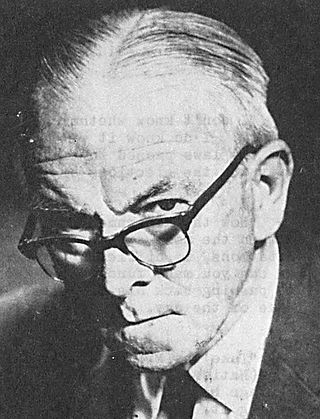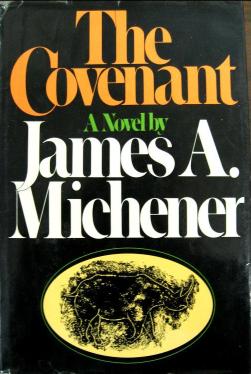Related Research Articles
The Republic of South Africa is a unitary parliamentary democratic republic. The President of South Africa serves both as head of state and as head of government. The President is elected by the National Assembly and must retain the confidence of the Assembly in order to remain in office. South Africans also elect provincial legislatures which govern each of the country's nine provinces.

Alan Stewart Paton was a South African writer and anti-apartheid activist. His works include the novels Cry, the Beloved Country, Too Late the Phalarope and the narrative poem The Wasteland.

The Day of Reconciliation is a public holiday in South Africa held annually on 16 December. The holiday came into effect in 1995 after the end of apartheid, with the intention of fostering reconciliation and national unity for the country. Recognising the need for racial harmony, the government chose the date for its significance to both Afrikaner and indigenous South African cultures. The celebration of the Day of Reconciliation can take the form of remembering past history, recognising veteran's contributions, marching, and other festivities.

The National Party, also known as the Nationalist Party, was a political party in South Africa from 1914 to 1997, which was responsible for the implementation of apartheid rule. The party was an Afrikaner ethnic nationalist party, which initially promoted the interests of Afrikaners but later became a stalwart promoter and enactor of white supremacy, for which it is best known. It first became the governing party of the country in 1924. It merged with its rival, the SAP, during the Great Depression, and a splinter faction became the official opposition during World War II and returned to power. With the National Party governing South Africa from 4 June 1948 until 9 May 1994, the country for the bulk of this time was only a de jure or partial democracy, as from 1958 onwards non-white people were barred from voting. In 1990, it began to style itself as simply a South African civic nationalist party, and after the fall of apartheid in 1994, attempted to become a moderate conservative one. The party's reputation was damaged irreparably by perpetrating apartheid, and it rebranded itself as the New National Party in 1997 before eventually dissolving in 2005.

Breyten Breytenbach is a South African writer, poet, and painter who became internationally well-known as a dissident poet and vocal critic of South Africa under apartheid, and as a political prisoner of the National Party-led South African Government. Breytenbach is now informally considered by Afrikaans-speakers as their poet laureate and is one of the most important living poets in Afrikaans literature. He also holds French citizenship.

The Afrikaner Weerstandsbeweging, meaning "Afrikaner Resistance Movement", commonly known by its abbreviation AWB, is an Afrikaner nationalist, neo-Nazi political party in South Africa. Since its founding in 1973 by Eugène Terre'Blanche and six other far-right Afrikaners, it has been dedicated to secessionist Afrikaner nationalism and the creation of an independent Boer-Afrikaner republic or "Volkstaat/Boerestaat" in part of South Africa. During bilateral negotiations to end apartheid in the early 1990s, the organisation terrorised and killed black South Africans.
James Howe McClure was a British author and journalist best known for his Kramer and Zondi mysteries set in South Africa.

Eugène Ney Terre'Blanche was an Afrikaner nationalist who founded and led the Afrikaner Weerstandsbeweging. Prior to founding the AWB, he served as a South African Police officer, was a farmer, and was an unsuccessful Herstigte Nasionale Party candidate for local office in the Transvaal. He was a major figure in the right-wing backlash against the collapse of apartheid. His beliefs and philosophy have continued to be influential amongst white supremacists in South Africa and across the world.

A referendum on becoming a republic was held in South Africa on 5 October 1960. The Afrikaner-dominated right-wing National Party, which had come to power in 1948, was avowedly republican and regarded the position of Queen Elizabeth II as the South African monarch as a relic of British imperialism. The National Party government subsequently organised the referendum on whether the then Union of South Africa should become a republic. The vote, which was restricted to whites—the first such national election in the union—was narrowly approved by 52.29% of the voters. The Republic of South Africa was constituted on 31 May 1961.

The Herstigte Nasionale Party is a South African political party which was formed as a far-right splinter group of the now defunct National Party in 1969. The party name was commonly abbreviated as HNP, evoking the Herenigde Nasionale Party, although colloquially they were also known as the Herstigtes. The party is, unlike other splinter factions from the National Party, still active but politically irrelevant.

Apartheid was a system of institutionalised racial segregation that existed in South Africa and South West Africa from 1948 to the early 1990s. Apartheid was characterised by an authoritarian political culture based on baasskap, which ensured that South Africa was dominated politically, socially, and economically by the nation's minority white population. In this minoritarian system, there was social stratification, where white citizens had the highest status, followed by Indians and Coloureds, then Black Africans. The economic legacy and social effects of apartheid continue to the present day, particularly inequality.

The Covenant is a historical novel by American author James A. Michener, published in 1980.

General elections were held in South Africa on 26 May 1948. They represented a turning point in the country's history, as despite receiving just under half of the votes cast, the United Party and its leader, incumbent Prime Minister Jan Smuts, were ousted by the Herenigde Nasionale Party (HNP) led by D. F. Malan, a Dutch Reformed cleric.
Etienne van Heerden, born 3 December 1954, is a South African author.
The system of racial segregation and oppression in South Africa known as apartheid was implemented and enforced by many acts and other laws. This legislation served to institutionalize racial discrimination and the dominance by white people over people of other races. While the bulk of this legislation was enacted after the election of the National Party government in 1948, it was preceded by discriminatory legislation enacted under earlier British and Afrikaner governments. Apartheid is distinguished from segregation in other countries by the systematic way in which it was formalized in law.
South African citizenship has been influenced primarily by the racial dynamics that have structured South African society throughout its development. The country's colonial history led to the immigration of different racial and ethnic groups into one shared area. Power dispersion and inter-group relations led to European dominance of the state, allowing it to directly shape citizenship although not without internal division or influence from the less empowered races.
The Howa Bowl was a first-class cricket competition in South Africa that ran from the 1972–73 to 1990–91 cricket seasons. Originally known as the Dadabhay Trophy, it was contested between Eastern Province, Natal, Transvaal and Western Province.
Boerehaat is an Afrikaans word that means "ethnic hatred of Boers" or Afrikaners as they became known after the Second Boer War. The related term Boerehater has been used to describe a person who hates, prejudices or criticises Boers or Afrikaners.

The flag of South Africa from 1928 to 1994 was the flag of the Union of South Africa from 1928 to 1961 and later the flag of the Republic of South Africa until 1994. It was also the flag of South West Africa to 1990, when that territory was under South African administration. Based on the Dutch Prince's Flag, it contained the flag of the United Kingdom, the flag of the Orange Free State, and the flag of the South African Republic (respectively) in the centre. A nickname for the flag was Oranje, Blanje, Blou.

The apartheid regime in South Africa began in 1948 and lasted until 1994. It involved a system of institutionalized racial segregation and white supremacy, and placed all political power in the hands of a white minority. Opposition to apartheid manifested in a variety of ways, including boycotts, non-violent protests, and armed resistance. Music played a large role in the movement against apartheid within South Africa, as well as in international opposition to apartheid. The impacts of songs opposing apartheid included raising awareness, generating support for the movement against apartheid, building unity within this movement, and "presenting an alternative vision of culture in a future democratic South Africa."
References
- ↑ Most critics conclude it to be a thinly veiled depiction of Pietermaritzburg "Following the Pig's Progress": article by Aitchison,T in The Natal Mercury, 13 September 1974.
- ↑ Perhaps inevitably the books received lukewarm reviews in his home land The mystery of McClure's Trekkersburg mysteries: Text and non-reception in South Africa Peck, R; English in Africa; May 1995, Vol. 22 Issue 1, p48, 24p
- ↑ The Gooseberry Fool